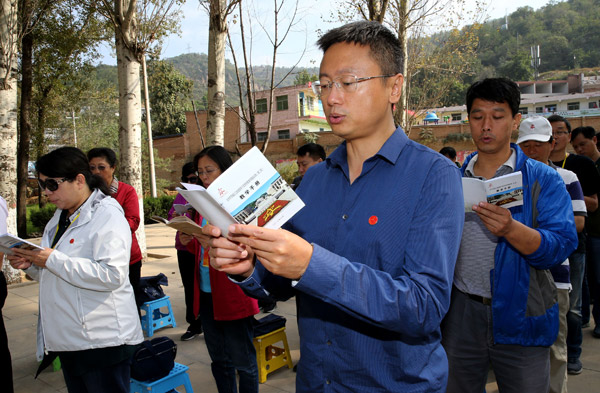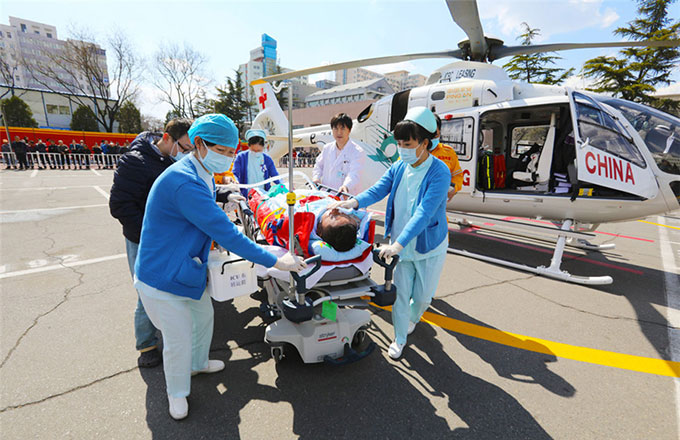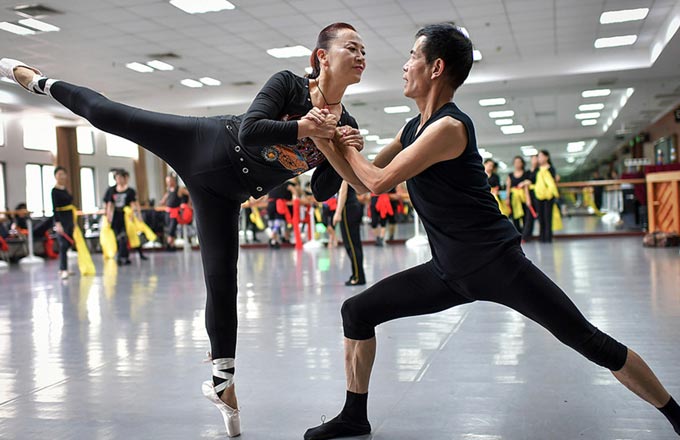'Revolution's cradle' nurtures new talents
 |
|
Cadres from Beijing's Xicheng district read the curriculum at the China Executive Leadership Academy in Yan'an. [Photos By Huo Yan/chinadaily.com.cn] |
Powerful alumni
There are 2,900 Party schools in China. The Yan'an academy is one of four national-level establishments established directly by the CPC Central Committee. The others are in Beijing, Shanghai and Jinggangshan, Jiangxi province.
The world's best universities have a common goal - to nurture future leaders - but no Chinese school has as many powerful alumni as the four national Party schools.
By the end of last year, the Party had about 89 million members, according to the latest figures from the CPC Central Committee's organization department. However, not every member has the chance to study at Yan'an.
Most of the academy's students are at the level of Party department and bureau chief, from municipal officials to departmental directors in central ministries. Alternatively, the students are executives at State-owned companies, professionals or army officers.
They all play significant roles in China's cadre system, but in recent years officials at the county level have also been included as part of concerted attempts to pay more attention to grassroots cadres.
The training of CPC officials has been a tradition for many years, and in the 1930s and 1940s there were more than 20 Party schools in Yan'an.
"During the preliminary phase of the War of Resistance Against Japanese Aggression (1931-45), tens of thousands of patriotic young people wanted to fight for the country, so many schools were established to train them," said a member of the academy's staff, who preferred not to be named. "The schools turned out a lot of cadres for future victories."
Since it opened on March 21, 2005, the Yan'an academy has trained about 77,200 Party members and held more than 1,550 training sessions, according to the academy's figures.
The students eat at canteens and live on campus. They sleep in 15-square-meter rooms that contain a single bed, a private bathroom, a desk, a TV and a shelf of "red books", ranging from Mao Zedong Thought to the speeches of President Xi Jinping.
Cadres, faculty and staff are encouraged to wear badges on campus to reinforce their "red" identities.
'Experience' classes
Like the three other national-level Party schools, the academy uses local historical resources to provide cadres with a "vivid" history of the CPC in its area.
Cadres attend courses lasting one to four weeks, depending on the program they have selected. The courses include reviewing their initial reasons for joining the Party, analyzing the thoughts and speeches of the top leaders, Marxist theory, Party history and undertaking "experience lessons" at historic sites.
"Party members come to Yan'an to seek their roots and inherit the 'red gene'. Yan'an has 'materialized' history. Historic sites, such as the hall used to hold early Party Congress meetings and the cave in which Mao Zedong lived, are not simply materialized history, but the CPC's spiritual indicator. The students can better absorb and inherit the sacred spirit of these historic sites," said Cao Kun, a professor at the academy.
He described how he took his class to the hall that was used to hold the sixth Party Congress. The cadres visited an exhibition that described the events at the meeting and then two of the teachers delivered lectures on related themes. Finally, the students shared their thoughts about the events described. "The students can feel and imagine what really happened here," Cao said.





















